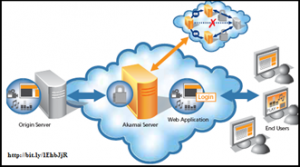Are Click-Through Rates Crushing Your Cash Returns? A CDN May Be The Answer!
30th November 2014
Don’t let click through rates cripple your cyber sales this Christmas! Find out how your business can make the most of this digital cash injection!
Tag Words: Cyber Traffic, Content Delivery Network, CDN, Website Crashing, Solution.
Increased email discounts; ‘festive free delivery’; and massive savings on digital purchases, have made in-store shopping is a thing of the past, with many more shoppers predicted to complete this year’s Christmas online. A staggering £74 billion pounds is expected to have been spent by the end of December – standing as the highest figure in the whole of Europe. (Boyce 2014) However, IT experts are already warning that with the predicted 125,000,000 hits on retail sites that will take place in the next 24 hours alone, and steadily rising over the Christmas period, ‘retailers will be at risk of losing sales’ when websites crash under the sheer volume of cyber-shoppers.
Following the sales frenzy of the British ‘Black Tag Weekend’ and ‘Cyber Monday’, many websites struggled to complete sales after crashing under the sheer volume of cyber shoppers, loosing considerable profits to more equipped competitors. If you’ve been in this position yourself, then… congratulations! Having that level of customer interest certainly isn’t a bad thing, but the festive season is only just beginning, and cyber-sales certainly aren’t going to slow down any time soon, so it is essential you amour your website now to harvest its full profit potential!
But what does this mean for your business, and how can you ensure your company makes the most of the festive profits?
In preparing for the digital downpour, it is essential to consider is attaching a Content Delivery Network (CDN) to your website. Put simply, a CDN is a cloud-based server which works in tandem with your existing web hosting account to speed up functioning and cut server pressure. This allows your site to accommodate a larger influx of click-through rates and server traffic without continuously crashing. The advantage is that you don’t need to change your website, and you can install a CDN just for the period you are expecting the influx. This keeps your costs to a minimum whilst allowing your website to rake in profits from cyber-sales, whether they’re completed on a computer, tablet, phone, or otherwise. A CDN can be purchased from several online providers, including Amazon, Akamai and CDNetworks, but the service provided by CloudFlare would be most appropriate for the particularly non-tech savvy as they provide 24 hour support and a jargon-free breakdown of the service (see Balkhi, 2014, at www.wpbeginner.com).
A CDN has the added benefit that if you choose to employ one full time, it does more than simply assist with filtering cyber traffic, but also prevents other essential content from crashing you site, including video clips, audio files, and photo’s, all of which may just be the clincher to many more sales! (McDonald, 2013). It may also be worth considering if you are a new business with a particularly large advertising campaign; if you are undergoing a merger with another company; or if you are simply trying to grow your existing client base.
So how much does a CDN cost? Costs for implementing a CDN vary between providers, and are dependent on both the size of your website and, if you choose a short-term plan, how long you employ the CDN for. Costs may be charged for each successful purchase made on your website, or on the number of views your website receives, so it is essential to choose a plan that best suits your content, and volume of sales you expect to incur. (Belicove, 2012).
But bear in mind that if you are a particularly small business, or do not experience huge spikes in cyber traffic, that your website may be crashing for other reasons, such as a faulty server, which a CDN will not fix, and you will be wasting money by using one. If you are concerned about your cite crashing due to internal faults, rather than cyber traffic, it can be equally damaging to your sales, and cost you a lot of money implementing as CDN that will not solve the problem. If you are not doing so already, you should monitor your click trough rates using Google analytics, or a similar program, which allows you pinpoint spikes in cyber traffic and see whether these correlate to the website crashes. You should always seek advice from a website specialist.
Has your website been affected by cyber traffic? Are you currently using a CDN? Why not leave your comments below!
Article by Kayleigh McChambell.
Want to read more practical advice for your business? Check out my other blog posts and follow me on Twitter: @KayleighDigiLaw
Sources:
Balkhi,S, Why You Need a CDN For Your WordPress Blog, 2014, WPBeginner.com, available at: http://www.wpbeginner.com/beginners-guide/why-you-need-a-cdn-for-your-wordpress-blog-infographic/
Baye and Gao, On the Optimality of Clickthrough Fees in Online Markets, 2011, The Wall Street Journal, available at: http://blogs.wsj.com/digits/2014/04/16/google-says-paid-clicks-jump-26-as-cost-per-click-drops-9/
Belicove, M, How to Prevent a Website Crash After a Traffic Spike, 2012, Entrepreneur.com, Available at: http://www.entrepreneur.com/article/223636
Boyce, L, British Shoppers Spend More on Christmas Presents than Anyone in Europe – and Are the Most Likely to Get in to Debt Doing it, 2014, thisismoney.com, available at: http://www.thisismoney.co.uk/money/saving/article-2850200/Shoppers-Britain-spend-money-festive-gifts-Europe.html
McDonald, S, 20 Content Marketing Tips to Boost Traffic, Engagement and Sales, Search-Engine Online Journals, 2013, available at: http://www.searchenginejournal.com/boost-traffic-engagement-and-revenue-with-20-actionable-content-marketing-tips/61209/
Wood, Z, Christmas Shopping Frenzy Moves Online for Cyber Monday, 2014, The Guardian, available at: http://www.theguardian.com/business/2014/nov/29/cyber-monday-christmas-shopping-frenzy-moves-online





